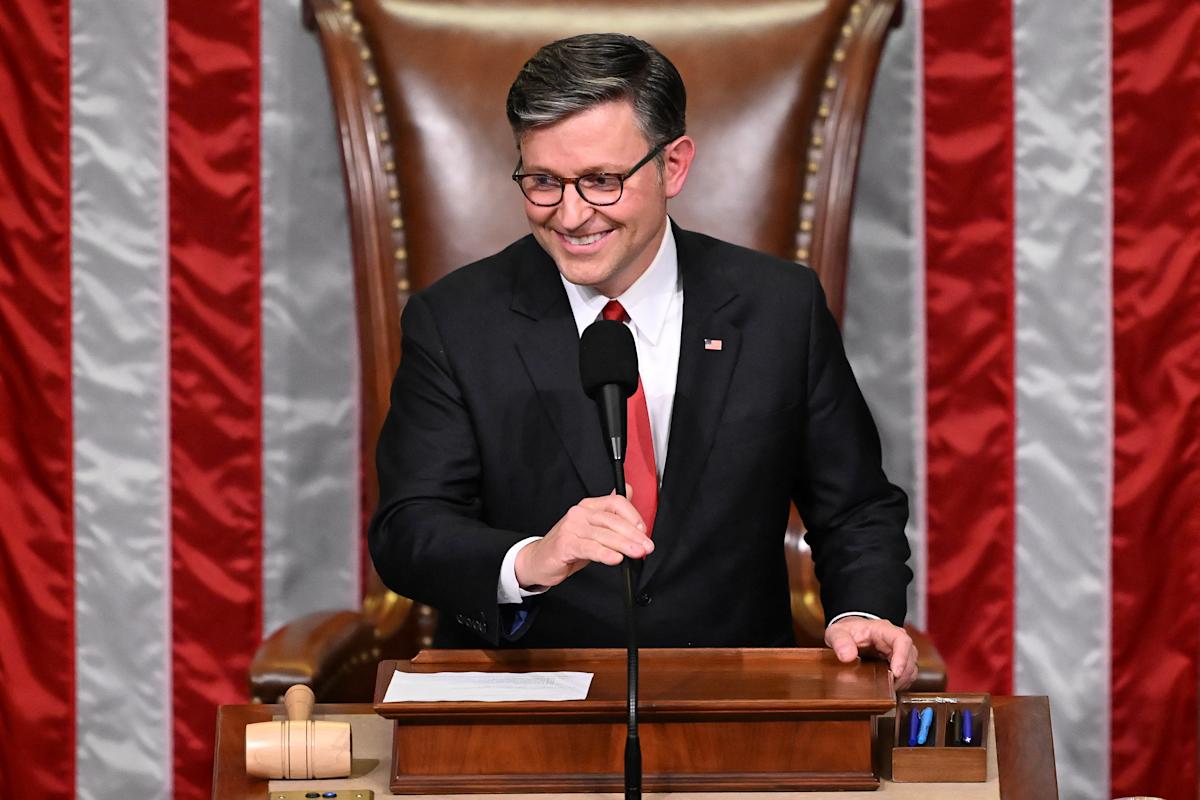Lawmakers moved Donald Trump’s “One Big Beautiful Bill” to the president for his signature and fulfilled a self-imposed deadline to pass it by July 4 after a series of intense and emotional debates consumed the past week on Capitol Hill.
In the end, the megabill moved through the Senate on a 50-50 tally that required Vice President JD Vance to break the tie before the 870-page bill passed the House a few days later in a vote of 218-214.
The process proved exceptionally contentious largely over healthcare provisions that are set to extract hundreds of billions in government savings but could cause millions to lose coverage.
Medicaid and the inclusion of a $5 trillion debt ceiling increase were just two of the most controversial pieces of a complex bill that is set to reshape whole swathes of the US economy, especially around taxes, energy, and healthcare.
House Speaker Mike Johnson reacts after the passing of President Donald Trump’s tax bill on the floor of the House of Representatives at the US Capitol on July 3. (ALEX WROBLEWSKI/AFP via Getty Images) · ALEX WROBLEWSKI via Getty Images
It’s a bill also set to be felt keenly in American pocketbooks with provisions like no taxes on tips, cuts to student loans and the Pell Grant program, changes to 529 plans for education expenses, an increase in state tax deductions, and a range of other provisions that both business and consumer groups will be digesting for months.
Clean energy companies are already paying perhaps the keenest attention, with government support for EVs and solar projects set to be eliminated in the years ahead due to changes in the bill.
Tesla (TSLA) CEO Elon Musk emerged during final negotiations as the top business-world critic attacking the bill’s price and how it treats clean energy. He said in recent days that the $3.3 trillion increase in debt expected from the bill makes a “mockery” of his work at the Department of Government Efficiency (DOGE).
Economists have likewise noted the final price tag, which could top $4 trillion. Also critiqued was an accounting gimmick Republicans employed to hide much of that red ink that Maya MacGuineas of the Committee for a Responsible Federal Budget called “a massive cover-up” in a withering statement that added that the bill was “the single most expensive, dishonest, and reckless budget reconciliation bill ever.”
Silicon Valley also has questions after a last-minute change stripped a closely-watched artificial intelligence provision.
But a range of GOP priorities that were included — from increased funding for border enforcement to money for America’s 250th anniversary celebration next year — pushed the bill over the line with many in corporate America also in favor and focused on the tax piece.
